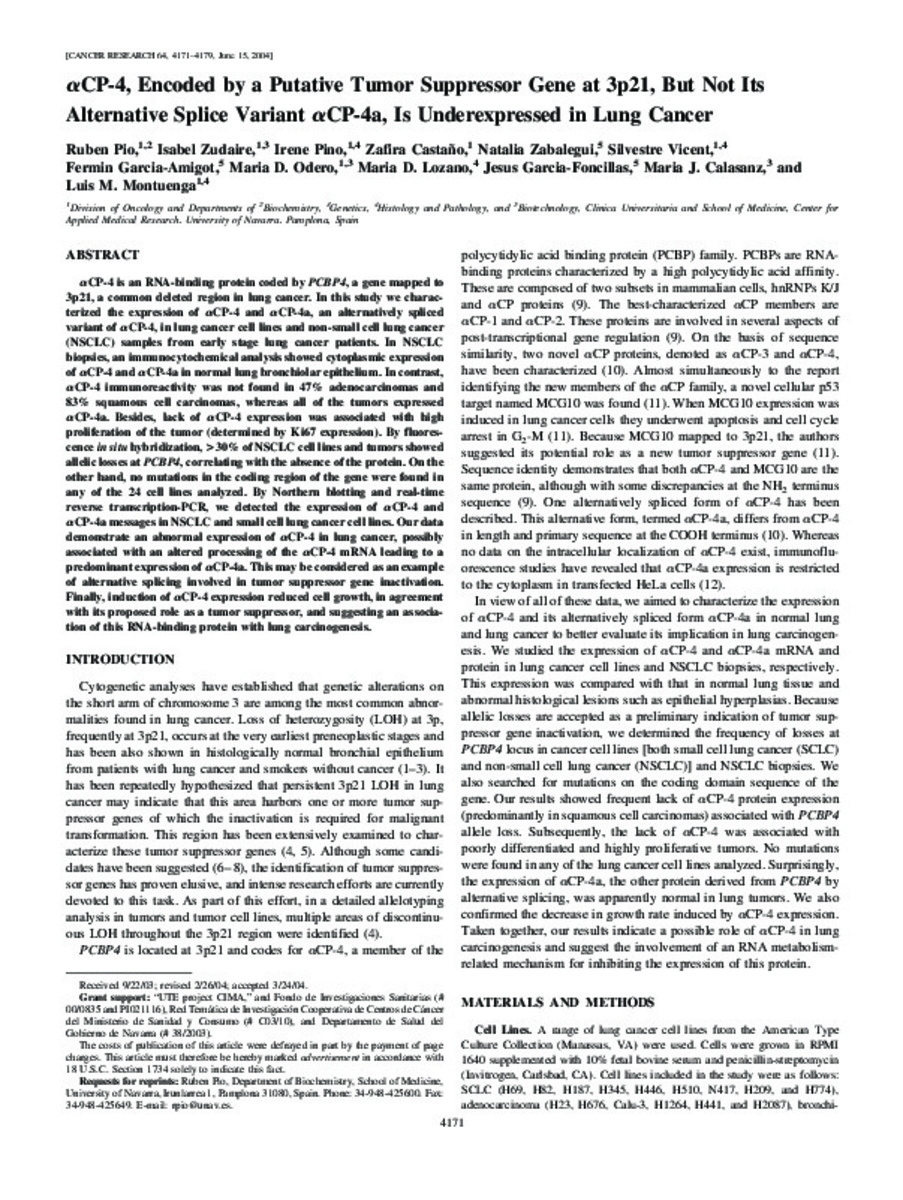Alpha CP-4, encoded by a putative tumor suppressor gene at 3p21, but not its alternative splice variant alpha CP-4a, is underexpressed in lung cancer
Keywords:
Lung Neoplasms/metabolism
Lung Neoplasms/pathology
RNA-Binding Proteins/biosynthesis
RNA-Binding Proteins/genetics
Publisher:
American Association for Cancer Research
Citation:
Pio R, Zudaire I, Pino I, Castano Z, Zabalegui N, Vicent S, et al. Alpha CP-4, encoded by a putative tumor suppressor gene at 3p21, but not its alternative splice variant alpha CP-4a, is underexpressed in lung cancer. Cancer Res 2004 Jun 15;64(12):4171-4179.
Statistics and impact
0 citas en

0 citas en

Items in Dadun are protected by copyright, with all rights reserved, unless otherwise indicated.











